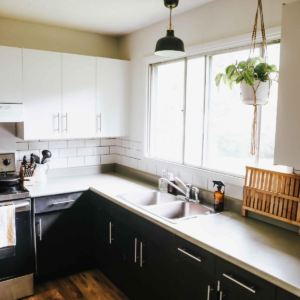Natural disasters seem to be occurring more and more in recent years. Whether it’s forest fires, floods, tornados or global pandemics it’s a good idea to be prepared for the worst. This doesn’t mean you need to become a doomsday prepper and devote your entire basement to canned goods! Here are some helpful tips before you start prepping.
Things to think of before you stock up on toilet paper – Prepping 101. Before you start hoarding toilet paper.
ASSESS YOUR SPACE
Before you start prepping it’s a good idea to assess the space you have available. If you live in a one bedroom apartment your options are going to be more limited than if you have an empty basement.
Determine the space you want to use (It’s a good idea to not store everything in one spot in case a flood, fire, etc hits leaving you stranded).
KEEP IT ORGANIZED
Part of assessing your space includes planning how you’ll store emergency items.
It might be a good idea to invest in some wire shelving, or plastic waterproof bins before you start prepping!
You’ll also want a system to keep track of expiration dates. Many preppers “shop” from their food storage, and then immediately replace that item. This way you are rotating through the food you have stored and ensuring that nothing is wasted!
DETERMINE WHAT YOU’RE PREPPING FOR
There are endless scenarios to be prepping for. It may not be possible to plan for EVERY possible emergency at the beginning, but here are some questions to ask yourself before you start prepping:
- What types of natural disasters are common
- What types of weather may you need to prepare for
- Do you have a water source
- Does your food require a heat source (stove, fire) to cook? If so, do you have a plan for that?
- What if your power goes out for an extended period of time?
- What if you need to evacuate your home?
Don’t be overwhelmed by all of these possibilities, just begin to think about them!
STOCKPILE WHAT YOU’LL ACTUALLY USE
This seems obvious, but it might be one of the biggest mistakes that beginner preppers make!
Use discernment when looking at what other’s are prepping. Don’t buy things just because it was on someone else’s list.
Factor in your climate, lifestyle and preferences before you start prepping.
If your family hates beans, don’t stock up on beans! If you don’t like tuna, don’t buy packs of tuna!
The same goes for non-food items. If you live in the desert, you’ll likely need an emergency supply of water. But if you live near a lake, it would make more sense to have a way to collect water and a water filter.
Check out this post on 100 Things To Stockpile for ideas.
LESS OBVIOUS THINGS TO PREP
Equally as important as physical survival items and food are the items you may not think of:
SAVINGS
One of the best ways to prepare for an emergency is with an emergency savings account! Of course this might not be something you can prep in a month, but make it a priority to reduce your monthly costs and start saving every single month.
However, be aware that in certain situations money cannot save you in an emergency!
FUEL
It’s a smart idea to never let your car run below 1/2 tank in the case of an emergency. Additionally, having a few extra jerry cans of gasoline can be beneficial.
If your emergency plan is to rely on a woodstove, gas stove, propane heater, etc make sure you have extra fuel and/or wood to run it!
MEDICATIONS
If anyone in your family is on medications, you should always keep several months on hand. In the case of any regional emergency, it may become difficult to obtain medications!
A FAMILY PLAN
Make sure your family has a plan and meet-up place in the event that you get separated. Go over this regularly and ensure that everyone is on the same page.
IMPORTANT DOCUMENTS
Make sure your important documents are in a safe place and easily accessible if you need to grab them in an emergency.
Put together a binder or folder with copies of important documents like birth certifications and passports.
TEST EVERYTHING
Test every single item as you purchase it. Ideally every member of the family should know how to use each item! You don’t want to be in an emergency situation and find out you don’t know how to light your stove or that your water filter is missing a piece.
Become comfortable with each piece of equipment you own. Develop the skills you may need to survive with the bare minimum for an extended period of time.
TAKE IT SLOWLY
Unless you can responsibly afford it, don’t go overboard at the beginning! Start slowly, educate yourself, and put together a well-thought out emergency preparedness kit that will work for your family!
Don’t compare yourself with someone who has been prepping for years. Do what feels comfortable and realistic for you!
DON’T PREP OUT OF FEAR
In my opinion, prepping should not be done out of fear. Nor should it instil fear. Prepping should make you feel confident and in control *should* anything ever happen!
Continue to live and enjoy your life!




